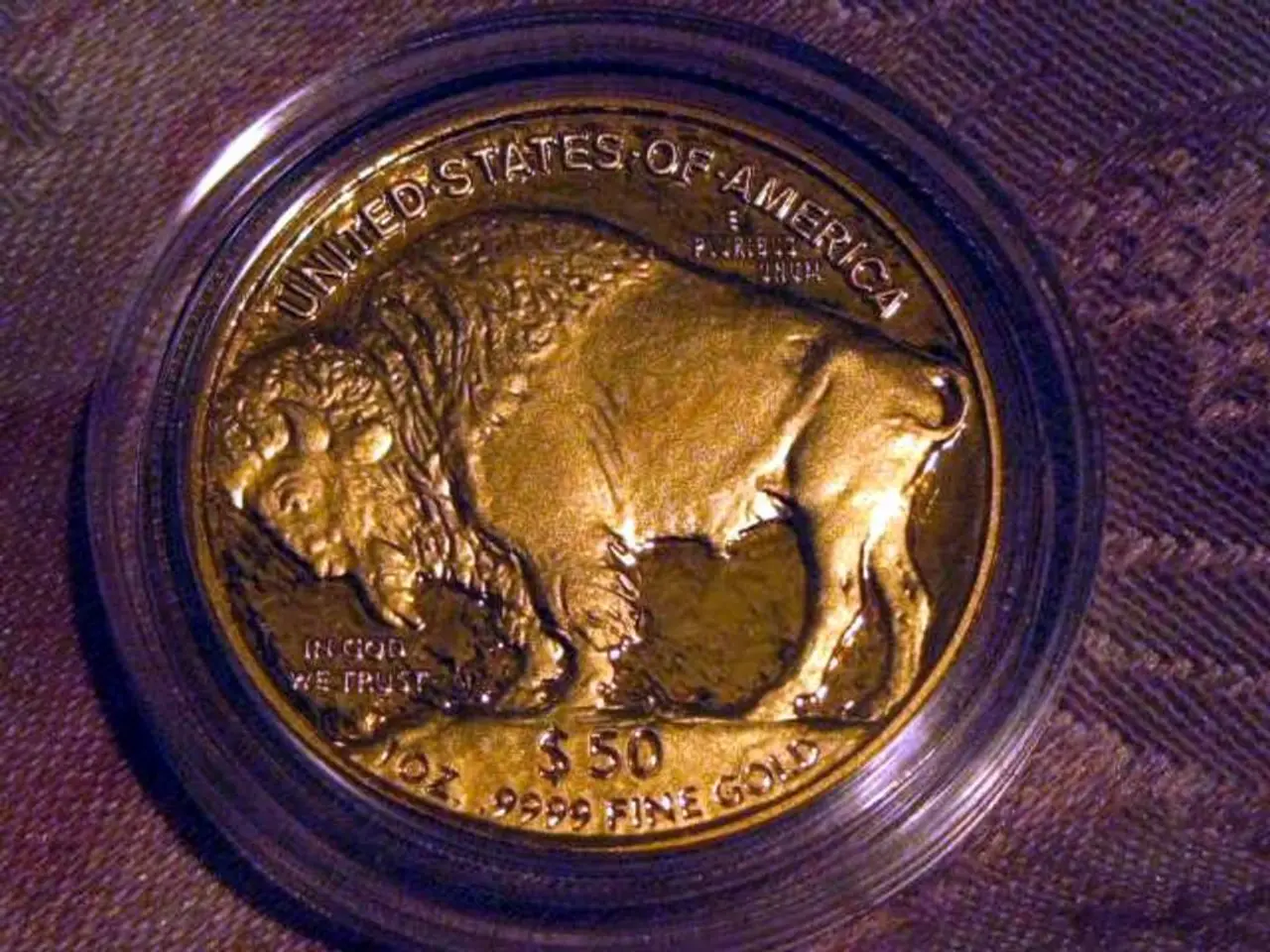Trump's Potential Dismissal of Powell Causing a Storm in Financial Markets
In the past few months, speculation surrounding the potential dismissal of Federal Reserve Chair Jerome Powell by President Trump has been a topic of debate, causing uncertainty in financial markets worldwide. The President's dissatisfaction with Powell's monetary policy decisions, particularly his refusal to lower interest rates to levels Trump desires, has led to a series of rumours and ambiguous statements.
On July 16, a headline emerged stating that Trump was considering firing Powell and had a draft of a "termination letter" ready. However, Trump later denied the report, causing the stock markets and bonds to stabilise and gold to decrease. Despite this, the persistent rumours and Trump's ambiguous statements continue to create market uncertainty.
The U.S. dollar has been trading high against global currencies since 2022, a fact that Trump believes does not facilitate the progress of the industrial fabric in the U.S. He has expressed concern about Powell keeping official interest rates too high, believing it hampers economic activity and refinancing of the country's sovereign debt on better terms.
The market would interpret the next Fed Chairman as a mere puppet in the hands of the U.S. President, similar to Turkish President Erdogan's central bankers. This perception raises concerns that removing Powell could lead to a more dovish Fed stance, potentially increasing inflation and causing negative real yields on U.S. Treasuries, thereby reducing their attractiveness.
The uncertainty stemming from possible Fed chair firing and the ensuing dollar fragility has led to modest increases in gold prices, as investors seek safe-haven assets. The dismissal would also cause a sharp fall in the stock markets, as Trump considers the S&P 500 Index (SP500) as a barometer of his management.
Concerns are rising that removing Powell could weaken the dollar as a global safe-haven currency, which is key for market confidence. If Trump were to fire Powell, sovereign bonds would go into a tailspin, with interest rates skyrocketing. The depreciation of the U.S. dollar, if it continues, could hurt investors outside the U.S. and make it a good idea to be hedged against exchange rate risk against the dollar.
If Trump were to fire Powell, it would be a very bearish event for the U.S. Dollar. The financial markets perceive the potential firing of Powell as an event that could destabilise the global economy. If since the end of 2023, gold has been in a historical uptrend, which could feed back with even greater vigour if Trump were to fire Powell. The dismissal of Powell would create a mother of all financial crises.
It is important to note that the law does not allow Trump to fire Powell unless there is evidence of fraud on the part of the Fed chairman. With only 10 months left for Powell to finish his term as Chairman of the Federal Reserve, the market will continue to watch this situation closely.
In conclusion, Trump's ongoing generation and denial of rumours about firing Powell stem from his frustration with Fed policies and political maneuvering, creating market uncertainty that weakens the dollar, raises concerns about bond yields, increases stock market volatility, and supports gold price gains due to safe-haven demand. The potential dismissal of Powell would have far-reaching implications for the global economy.
- The ongoing speculation about the potential dismissal of Federal Reserve Chair Jerome Powell by President Trump is causing uncertainty in the stock-market, finance, and general-news sectors.
- If President Trump were to fire Jerome Powell, it would have far-reaching implications for the global economy, potentially causing a sharp fall in the stock-markets, a depreciation of the U.S. dollar, and an increase in gold prices due to safe-haven demand.
- The U.S. government's involvement in finance through the Federal Reserve and monetary policy decisions, as influenced by political maneuvering, can significantly impact the stock-market, bonds, and the U.S. dollar's status as a global safe-haven currency.




